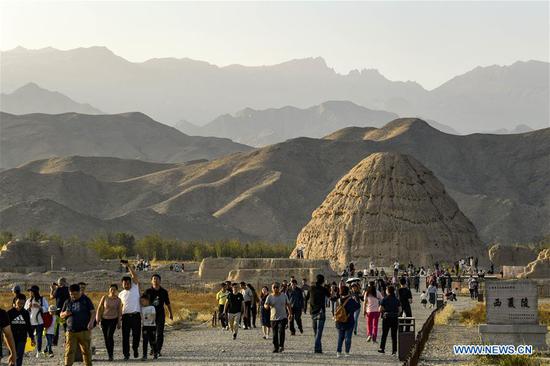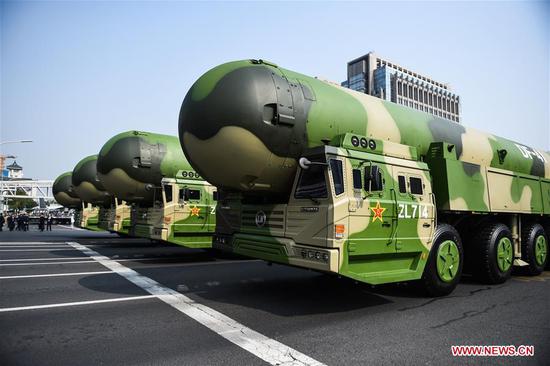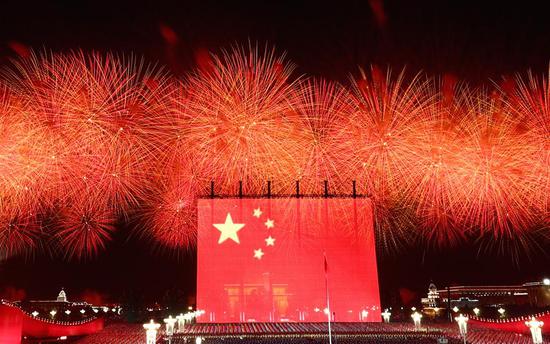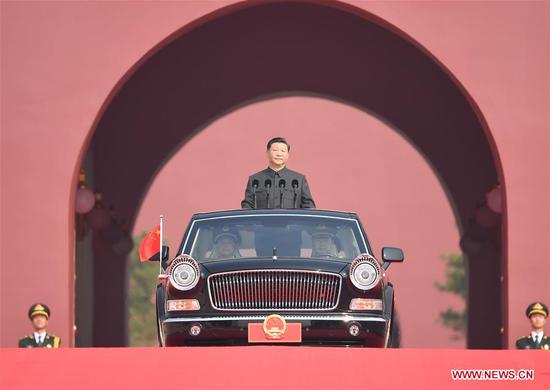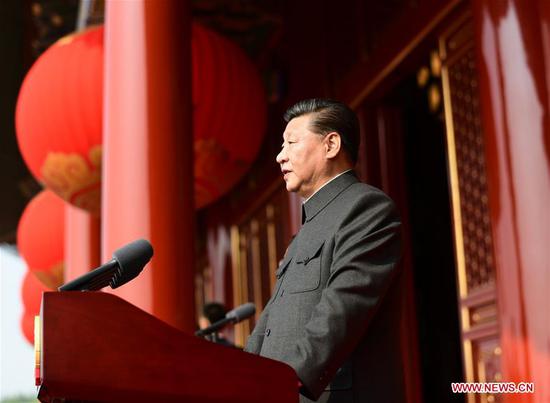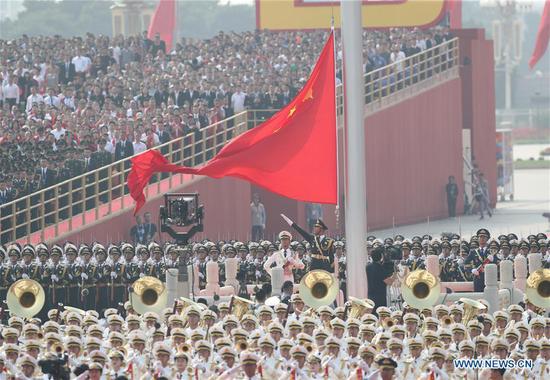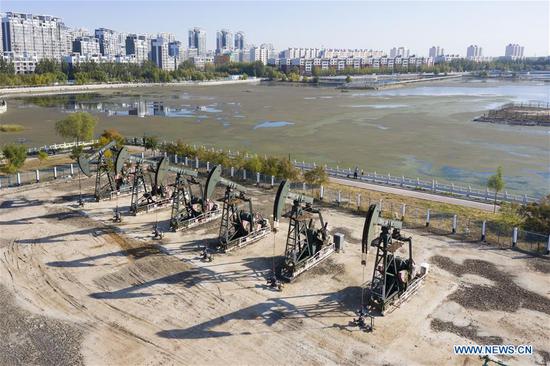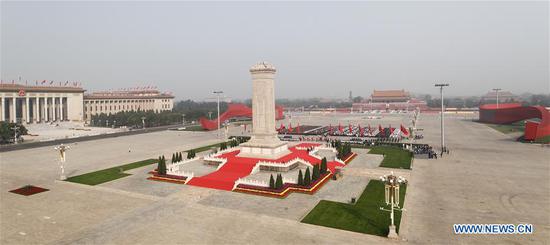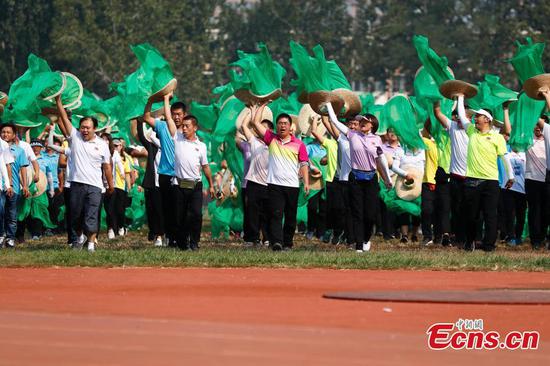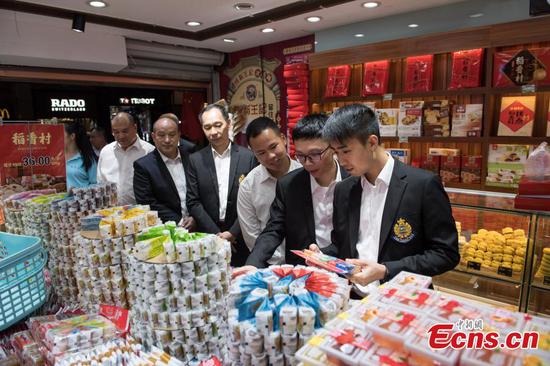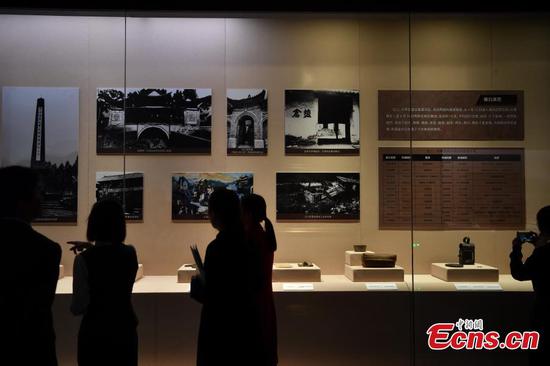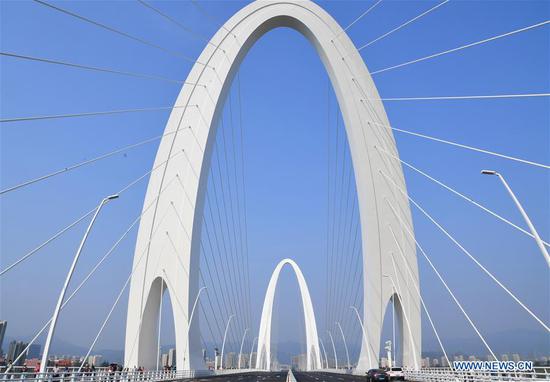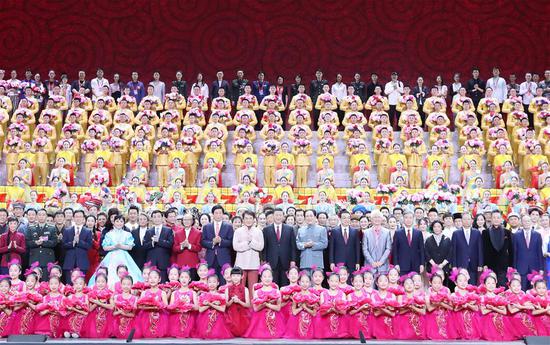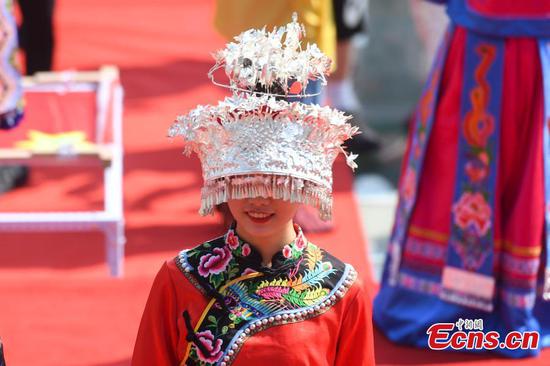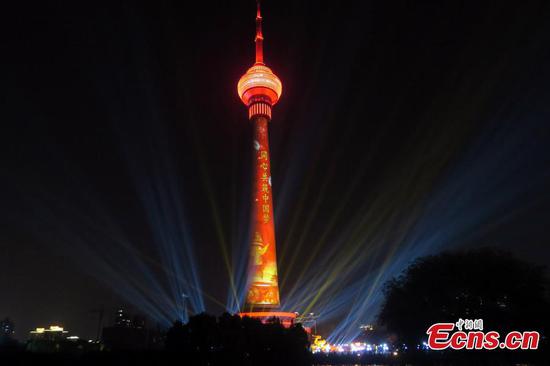Despite the slowing momentum of global trade growth, China remains attractive to the world's multinationals with its huge consumer market, optimized business environment and innovation capability.
EXPANDING PRESENCE
Swiss tech giant ABB began construction of its new 67,000-square meter robotics manufacturing and research facility in Shanghai in September with an investment of 150 million U.S. dollars.
It is designed to be the most advanced, automated and flexible factory in the global robotics industry, utilizing the latest manufacturing processes –– a cutting-edge center where robots make robots.
Since 1992, ABB has invested more than 2.4 billion U.S. dollars in China, with nearly 20,000 employees in total. China has become the company's second-largest market.
"In the future, we will continue to expand investment in the country, further optimize the business layout and enhance innovation capability," said Gu Chunyuan, president of ABB Asia, Middle East and Africa Region.
German company Henkel, a leading player in industrial and consumer businesses, also has a long-term commitment to and strong confidence in China. Early this year, Henkel announced it is stepping up investment by around 300 million euros annually to build on its strengths and capture opportunities.
"China will be one of the focal markets. We will strengthen our position by accelerating the launch of new brands and innovations, increasing our marketing investments and driving digitalization even further," said Jeremy Hunter, president of Henkel Greater China.
Having established its first office in Beijing in 1988, the company now has around 5,000 employees at 25 sites across China. The production output of its manufacturing plant in Yantai of Shandong Province has increased more than 50 times over the years.
EMBRACING OPPORTUNITIES
"China's huge market, steady growth momentum, complete industrial infrastructure as well as rich talent resources are all very attractive, " said Gu Chunyuan.
As ABB's second-biggest market, China's increasingly optimized business climate, more energetic and effective market system and deepened opening-up policies have lured the company to beef up its confidence in the China market, he said.
As the center of the world's manufacturing industry, China has witnessed unprecedented upgrading and transformation of industries toward digitalization and intelligence, which will unleash huge market potential, said Gu, adding that China's development has brought many opportunities to the company, and convinced ABB to expand investment.
Hunter attributed Henkel's success in China to the country's continuous efforts of pursuing innovation-driven economic development, which has fostered a favorable environment for the company.
"Moreover, China has become a global force in digital technologies. Accelerated digitalization has also been a key driver for Henkel," said Hunter, noting that the rapid transformation of China's manufacturing and consumption upgrading are also driving demand for the company.
EXPECTING GROWTH
Foreign investors agree that the Chinese economy offers them indispensable certainty and confidence with its positive outlook.
Commenting on China's efforts on pushing for all-around opening-up and building a stable, transparent and predictable investment environment, Gu said these measures will bring huge development opportunities for foreign-funded companies.
"We believe that China's further opening-up will promote the globalization as well as the liberalization and facilitation of trade," Gu said.
Hunter noted China will maintain its unparalleled momentum in industrial and consumption upgrading and its integration into global flows of trade, talent and innovation.
"I believe that the Chinese market will go beyond just participating in these areas to actively shaping their future development," he said.











